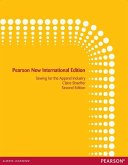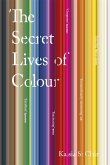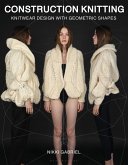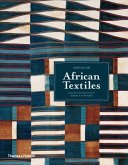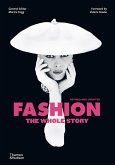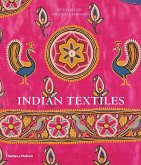For courses in Textile Science, Textile Fundamentals, Introduction to Textiles, Textiles for Interiors, or other courses that focus on basic textiles.
A revered resource, Textiles, Elevnth Edition, by Sara Kadolph, provides students with a basic knowledge of textiles, how they are produced and how appropriate performance characteristics are incorporated into materials and products. Organized according to the textile production process, the text provides a solid understanding of textile components—including fibers, yarns, fabrics, and finishes. Using new full-color photos and illustrations, it examines the interrelationships among these components and their impact on product performance. This edition features coverage of new fibers, updated industry and company examples and summary tables that make this a timeless resource for any industry professional. Also discusses the new effects of sustainablity in the industry.
Features + Benefits
Hallmark Features
Authoritative treatment that focuses on three end-uses of textiles: apparel, furnishings, and industrial or technical products—and is essential for any professional library.
Offers up-to-date material and current practices that make this among the most respected resources available today.
Provides readers with the basic knowledge of textiles so they understand how textiles are produced and how performance characteristics are incorporated into materials and products.
Four main sections follow the normal sequence used in the production of textiles—fiber, yarn, fabrication, and finishing.
Discusses the contribution of each component as it is incorporated in or combined with other components in a textile product.
Stresses the interrelationships among the components.
Product performance, cost and customer satisfaction—is emphasized throughout the text.
Discusses the impact of production processes and selection of components on product performance, cost and consumer satisfaction.
Summary tables—appear throughout the text.
Provides quick visual comparisons that can be referenced easily in the course or in the field.
Presents material in a clear and consistent fashion throughout each chapter.
An introduction to industry terminology—appears throughout the text.
Defines key terms in the text and in the glossary so readers can understand and communicate more effectively with other industry professionals.
Includes a pronunciation guide with some words to help readers say and use terms correctly.
Table of Contents
SECTION ONE: INTRODUCTION TO TEXTILES
1. Introduction
2. Product Development from a Textile Perspective
SECTION TWO: FIBERS
3. Textile Fibers and Their Properties
4. Natural Cellulosic Fibers
5. Natural Protein Fibers
6. The Fiber Manufacturing Process
7. Manufactured Regenerated Fibers
8. Synthetic Fibers
9. Special-Use Fibers
SECTION THREE: YARNS
10. Yarn Processing
11. Yarn Classification
SECTION FOUR: FABRICATION
12. Weaving, Basic Weaves and Fabrics
13. Fancy Weaves and Fabrics
14. Knitting and Knit Fabrics
15. Other Fabrication Methods
SECTION FIVE: FINISHING
16. Finishing: An Overview
17. Aesthetic Finishes
18. Special-Purpose Finishes
19. Dyeing and Printing
SECTION SIX: OTHER ISSUES RELATED TO TEXTILES
20. Care of Textile Products
21. Legal, Sustainability, and Environmental Issues
22. Career Exploration
GLOSSARY
INDEX
Hinweis: Dieser Artikel kann nur an eine deutsche Lieferadresse ausgeliefert werden.
A revered resource, Textiles, Elevnth Edition, by Sara Kadolph, provides students with a basic knowledge of textiles, how they are produced and how appropriate performance characteristics are incorporated into materials and products. Organized according to the textile production process, the text provides a solid understanding of textile components—including fibers, yarns, fabrics, and finishes. Using new full-color photos and illustrations, it examines the interrelationships among these components and their impact on product performance. This edition features coverage of new fibers, updated industry and company examples and summary tables that make this a timeless resource for any industry professional. Also discusses the new effects of sustainablity in the industry.
Features + Benefits
Hallmark Features
Authoritative treatment that focuses on three end-uses of textiles: apparel, furnishings, and industrial or technical products—and is essential for any professional library.
Offers up-to-date material and current practices that make this among the most respected resources available today.
Provides readers with the basic knowledge of textiles so they understand how textiles are produced and how performance characteristics are incorporated into materials and products.
Four main sections follow the normal sequence used in the production of textiles—fiber, yarn, fabrication, and finishing.
Discusses the contribution of each component as it is incorporated in or combined with other components in a textile product.
Stresses the interrelationships among the components.
Product performance, cost and customer satisfaction—is emphasized throughout the text.
Discusses the impact of production processes and selection of components on product performance, cost and consumer satisfaction.
Summary tables—appear throughout the text.
Provides quick visual comparisons that can be referenced easily in the course or in the field.
Presents material in a clear and consistent fashion throughout each chapter.
An introduction to industry terminology—appears throughout the text.
Defines key terms in the text and in the glossary so readers can understand and communicate more effectively with other industry professionals.
Includes a pronunciation guide with some words to help readers say and use terms correctly.
Table of Contents
SECTION ONE: INTRODUCTION TO TEXTILES
1. Introduction
2. Product Development from a Textile Perspective
SECTION TWO: FIBERS
3. Textile Fibers and Their Properties
4. Natural Cellulosic Fibers
5. Natural Protein Fibers
6. The Fiber Manufacturing Process
7. Manufactured Regenerated Fibers
8. Synthetic Fibers
9. Special-Use Fibers
SECTION THREE: YARNS
10. Yarn Processing
11. Yarn Classification
SECTION FOUR: FABRICATION
12. Weaving, Basic Weaves and Fabrics
13. Fancy Weaves and Fabrics
14. Knitting and Knit Fabrics
15. Other Fabrication Methods
SECTION FIVE: FINISHING
16. Finishing: An Overview
17. Aesthetic Finishes
18. Special-Purpose Finishes
19. Dyeing and Printing
SECTION SIX: OTHER ISSUES RELATED TO TEXTILES
20. Care of Textile Products
21. Legal, Sustainability, and Environmental Issues
22. Career Exploration
GLOSSARY
INDEX
Hinweis: Dieser Artikel kann nur an eine deutsche Lieferadresse ausgeliefert werden.


